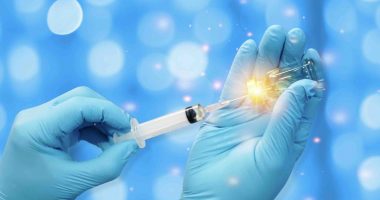- Medical artificial intelligence specialist LBT Innovations (LBT) has applied for FDA approval for its Automated Plate Assessment System tech
- The device has already received FDA approval for its urine analysis module
- Now, the company is seeking approval for a new MRSA module
- The application will take up to 90 days to review
- However, the product in question has already been approved for sale in Australia and Europe, meaning FDA approval is likely
- Shares in LBT are up just under 10 per cent today, currently worth 12 cents each
Medical artificial intelligence specialist LBT Innovations (LBT) is eyeing fresh U.S. Food and Drug Administration (FDA) approval for its plate assessment device.
LBT’s Automated Plate Assessment System (APAS) Independence tech is designed to streamline microbiology work by automatically screening and interpreting culture plates in a lab.
Normally, each bacteria culture plate needs to be individually reviewed by a microbiologist. The APAS system does this automatically and in a fraction of the time with impressive accuracy.
While the product has already been approved in the States for its urine analysis module, LBT needs to create a new module for each different type of bacteria specimen analysed, hence today’s application.
LBT is now looking to get its APAS Independence with a Methicillin-resistant Staphylococcus aureus (MRSA) analysis module approved by the FDA.
The company has submitted a 510(k) application. Essentially, this type of FDA approval compares a device to one already approved for sale to determine if the new device is equally safe to use.
For LBT, this means the APAS Independence with MRSA analysis module will be compared to the same device with the urine analysis module for pre-market approval.
Further, the APS Independence with MRSA analysis module has already been approved for sale in Australia and Europe through the Therapeutic Goods Administration (TGA) and CE Mark approval. This means the device is likely to be approved in the U.S.
Nevertheless, each 510(k) application has a 90-day review process, meaning LBT can expect the outcome of the application in the third quarter of 2020. The company warned, however, that this timeline might be impacted by the spreading COVID-19 pandemic.
LBT CEO and Managing Director Brent Barnes said the FDA approval is a key step to commercialising the APAS Independence product.
“We believe that expanding the number of analysis modules to our customers in each region is a critical part of our commercialisation strategy for the APAS technology. Put simply, increasing the number of tests that can be processed on the APAS instrument further increases the potential cost savings for our customers,” Brent explained.
With just the MRSA and urine analysis modules available, LBT said these two devices alone cover between 50 and 70 per cent all culture specimens process by labs across the States.
Each device will have a different software licence so laboratories can customise the configuration of their APAS device to suit their needs.
Following today’s news, LBT shares are up 9.52 per cent and trading for 12 cents each.





